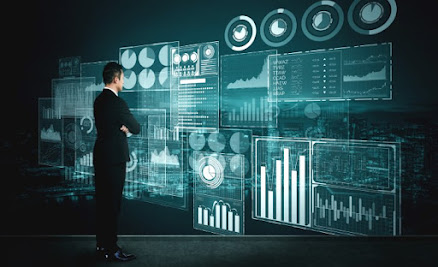The Future of the Internet: Unlocking Boundless Opportunities
Introduction
The Internet has revolutionized the way we live, work, and
communicate over the past few decades. From its humble beginnings as a network
connecting a few research institutions, it has grown into a global information
superhighway that connects billions of people worldwide. As we look ahead, the
future of the internet promises to be even more transformative and
awe-inspiring, with technological advancements that will redefine our daily
lives. This article explores the potential developments and challenges that lie
ahead in the future of the internet.
Enhanced Connectivity
One of the most significant advancements in the future of the
internet is the widespread deployment of 5G and beyond. This next-generation
network will not only provide faster data speeds but also lower latency,
enabling real-time interactions and seamless connectivity across a wide range
of devices. As 5G infrastructure becomes more prevalent, it will pave the way
for innovations such as augmented reality (AR) and virtual reality (VR)
applications, autonomous vehicles, and smart cities.
Internet of Things (IoT) and Smart Devices
The internet's future will be characterized by an explosion
of IoT devices and interconnected smart devices. These devices will span across
industries, including healthcare, transportation, agriculture, and home
automation. From smartwatches that monitor our health to intelligent appliances
that optimize energy usage, the internet of things will enhance efficiency,
convenience, and personalization in our lives.
Artificial Intelligence (AI) and Machine Learning
AI and machine learning will become more intertwined with
the fabric of the internet, influencing how we search, consume content, and
interact online. AI-powered chatbots and virtual assistants will provide more
personalized and natural interactions, making online experiences more efficient
and enjoyable. Additionally, AI algorithms will help in content curation,
predicting user preferences, and combating misinformation.
Blockchain and Decentralization
Blockchain technology will continue to disrupt traditional
centralized systems, leading to more decentralized and secure internet infrastructures.
Decentralized applications (DApps) will enable users to interact directly
without intermediaries, ensuring greater privacy and control over personal
data. Moreover, blockchain's immutable nature will enhance data integrity,
reducing the risk of data breaches and cyber-attacks.
Privacy and Cybersecurity
With the increasing reliance on the internet and data-driven
services, the future will see a growing concern for privacy and cybersecurity.
As more sensitive information is transmitted and stored online, safeguarding
user data will be paramount. Innovations in encryption, biometrics, and
multi-factor authentication will strengthen security measures. Additionally,
policymakers will need to adapt regulations to protect user privacy while
promoting innovation.
Edge Computing
Edge computing will emerge as a game-changer, bringing
computing power closer to end-users and IoT devices. By processing data locally
instead of sending it to centralized data centers, edge computing reduces
latency, conserves bandwidth, and enhances the performance of real-time
applications. This advancement will be critical for applications that require
immediate responses, such as autonomous vehicles and remote medical procedures.
Virtual and Augmented Reality
Virtual and augmented reality technologies will redefine
online experiences, from gaming and entertainment to education and
collaboration. Advanced VR headsets and AR glasses will create immersive
environments, blurring the line between the physical and digital worlds. These
technologies will enable remote collaboration, virtual tourism, and immersive
learning experiences, transforming industries and entertainment sectors.
Global Accessibility and Digital Inclusion
The future of the internet should be one of inclusion, where
everyone, regardless of geographical location or socioeconomic status, can
access the digital realm. Initiatives to expand internet infrastructure to
remote areas and bridge the digital divide will be crucial to ensure equitable
access to information, education, and economic opportunities.
Indeed, the internet has revolutionized the world in
numerous ways, offering a plethora of advantages that have transformed the way
we live, work, and communicate. Here are some of the key advantages of the
internet:
Access to Information: The internet is a vast repository of
information on virtually every topic imaginable. With just a few clicks, we can
access news, research papers, educational resources, tutorials, and much more.
This democratization of knowledge has empowered people with the ability to
learn and grow irrespective of their geographic location or economic
background.
Global Connectivity: The internet has shrunk the world,
enabling instant communication and collaboration across continents. Social
media platforms, email, video conferencing, and messaging apps have made it
easy for individuals, businesses, and governments to connect and interact in
real-time.
Conclusion
The future of the internet holds immense promise, with the
potential to shape every aspect of our lives. From hyper-connected smart cities
to personalized AI-driven experiences, the possibilities seem limitless.
However, as we embrace these technological advancements, we must also address
the challenges they present, such as ensuring privacy, cybersecurity, and
digital inclusion.
To make the most of the future internet, collaboration
between governments, businesses, and individuals will be essential. Responsible
and ethical development, combined with a commitment to safeguarding user
rights, will pave the way for a transformative and empowering internet experience
for generations to come. By embracing innovation while upholding the values of
privacy, security, and accessibility, we can unlock the boundless opportunities
that the future of the internet has to offer.
